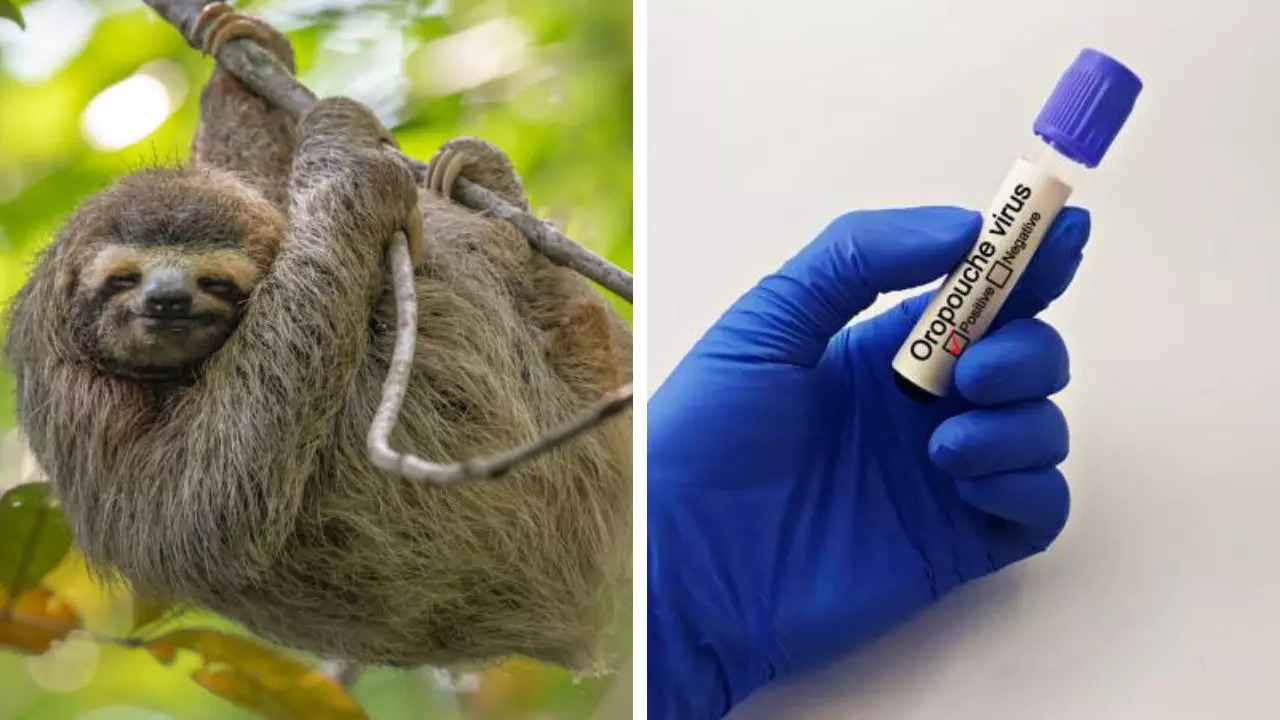Contents
First cases of sloth fever reported in US, CDC warns travelers to take precautions
At least 11 cases of sloth fever have been reported in the U.S., according to the state health department, as the debilitating Oropouche virus has been detected in North America for the first time. Officials say those affected had recently returned from trips to Cuba and Brazil — where the disease recently killed two young women. Read on to learn some ways to prevent it — including avoiding non-essential travel to infected areas.

More than 10,000 cases have been reported worldwide since the beginning of this year
US health officials have reported at least 11 cases of sloth fever in Florida for the first time. According to the Centers for Disease Control and Prevention, all of the people affected by the Oropoch virus had recently returned from travel to Cuba and Brazil – where the disease recently killed two young women.
The incident comes just days after the first cases were also reported in Europe – in Spain, Italy and Germany.
More than 10,000 cases have been reported worldwide since the beginning of this year, and 500,000 cases have been reported since the disease was discovered in 1955. According to experts, since this year’s outbreak began in South American countries such as Bolivia, Colombia, Peru and Cuba, the virus will spread globally.
Sloth fever is primarily spread by mosquito and midge bites and originates from sloths – hence its nickname: ‘sloth fever’. According to the State Department, currently, there is no evidence to suggest the virus can spread between people.
CDC warns against non-essential travel to South America
The CDC has warned against any non-essential travel to South America – especially for pregnant women, who are at a higher risk of contracting the deadly virus. Experts say that since there is no vaccine to treat sloth fever – which comes from the same family as the Zika virus and dengue fever – taking precautions is highly recommended.
New data suggests the virus can cause miscarriage or birth defects in pregnant women. “If travel is unavoidable, pregnant travelers should strictly follow Oropouche virus prevention recommendations to avoid insect bites while traveling,” the C.D.C. said in a statement.
Measures to avoid infection
According to experts, Oropoch is considered a mysterious threat because not much is known about it as it is still an emerging disease. However, there are some steps you can take to prevent it:
Prevent bites
It’s important to protect yourself from this virus, just like the viruses that cause dengue, Zika, and malaria, because they are all spread by mosquitoes, especially in tropical areas. And so, if you’re traveling, make sure to:
- Use insect repellent
- Wear long-sleeved tops and trousers
- Stay in places with air conditioning
- Use mesh and mosquito nets on windows and doors
- Avoid strong-smelling perfumes, soaps, shampoos, and deodorants
- Be sure to remove all food waste, dead leaves and water reserves around your home, to reduce the places where female insects can lay their eggs
avoid traveling to infected areas
One of the best ways to avoid becoming infected is to completely avoid unnecessary travel to areas where the Oropoch virus is present, as you could carry the infection back to your country if you are bitten by an infected mosquito or insect.
Additionally, not traveling reduces the chance of additional spread of the virus and its entry into unaffected areas.
Be alert to the symptoms
According to experts, learn the symptoms of this disease to protect yourself from Oropoch. According to the CDC, the infection begins with a high fever and severe headache, which usually begins 3-10 days after being bitten by an infected bug.
Other possible symptoms include muscle pain, joint stiffness, nausea, vomiting, chills, and sensitivity to light.
Seek immediate medical help
The CDC recommends seeing a doctor as soon as you notice signs of infection to prevent further complications and infection.
Get the latest news on Times Now as well as breaking news and top headlines from across health and the world.


